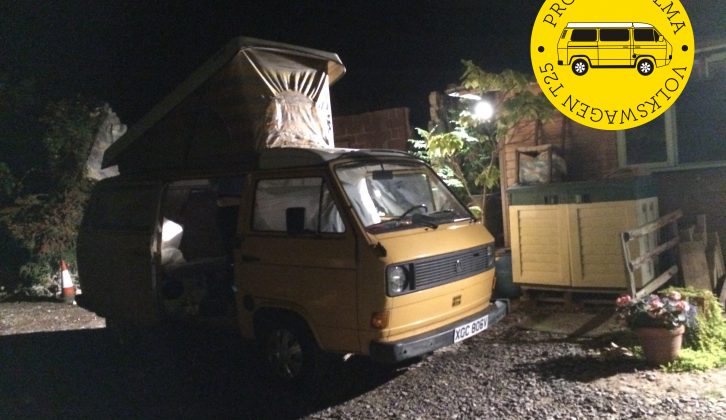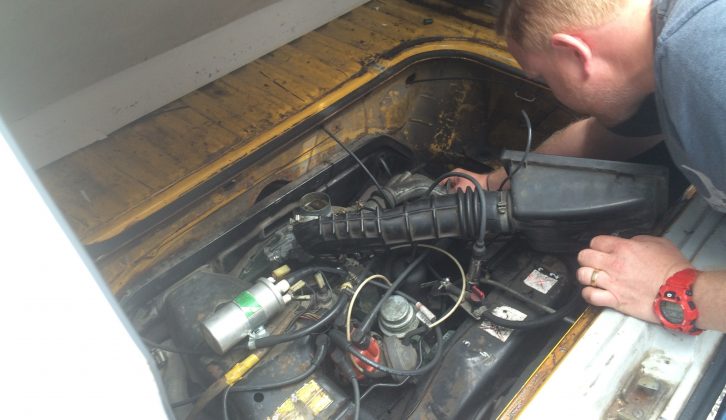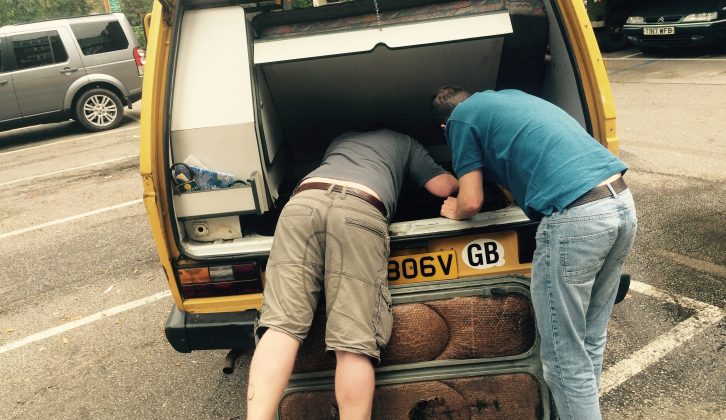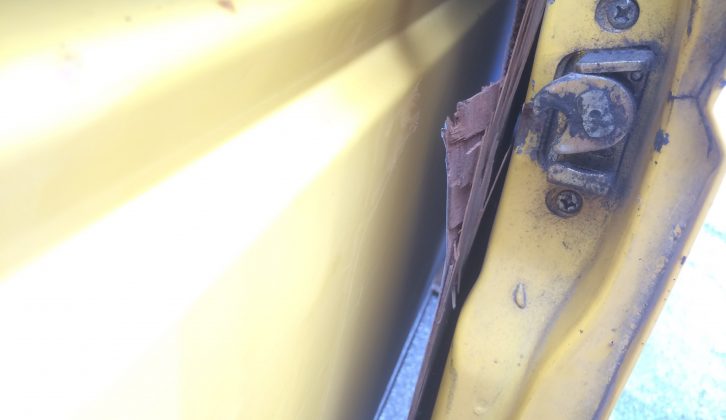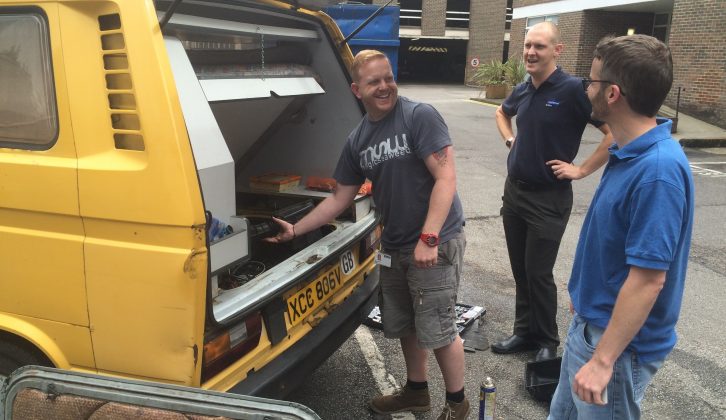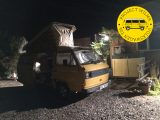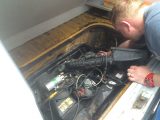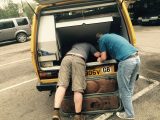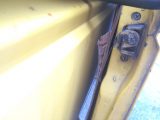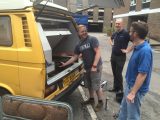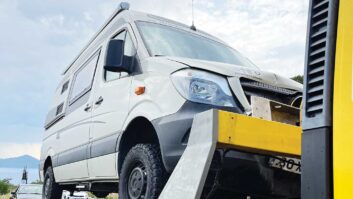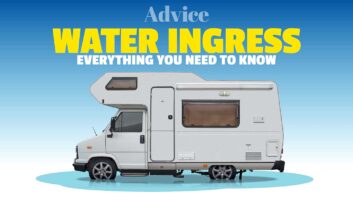Our Volkswagen T25 campervan had managed to shrug off a few local trips, so after checking on a few basic service items, topping up the oil and filling her up with unleaded, Jen and I packed her up on the Thursday night, ready to head straight off from work the following afternoon on our first overnight trip.
We planned to take Wilma, our VW, down to the outskirts of Taunton, to attend a weekend-long upholstery course. The idea was to try and learn our way around a pair of pinking shears and tidy the campervan’s cabin at the same time. All we had to do was get to Taunton.
Things did not start well. Starting the ‘van on Friday afternoon, the previously healthy 1600cc engine had developed a definite whistle. Not wanting to embark on a 150-odd-mile trip down the A303 with a known issue, I was delighted to see a colleague from Classic & Sports Car in the car park with a bag of spanners. Magazine designer, Martin, who regularly spends his lunchtime playing with his elderly VW Beetle, dived straight under Wilma’s engine cover to see what she was complaining about.
Immediately, he diagnosed loose manifold nuts on the left-hand side of the engine, which had allowed a little gap to open up on the inlet side, meaning that extra air was being sucked into the engine. Perhaps that explained the yellow wedge’s reluctance to start, too? Martin quickly tightened things up, and was immediately called into action to help reattach the sliding side door. For no obvious reason, during the engine manifold repair, the door trim panel had sprung off the door when the door was open. When the door was closed, it then proceeded to lever the whole door off the runner and into my hands.
This was very disappointing. However, a bit of logical examination of the mechanism showed how it went back together and, once the broken door card had been flung across the car park, everything was back as it should have been. Feeling that Wilma’s luck had changed, we hit the M3 to head south west, fairly confident she was happy.
We hit our first traffic jam inevitably, as anyone who knows the route will know, by Stonehenge, but evidently, all was not well. As we pulled up to the back of the line, a red light started gently glowing and behind us, the air-cooled clatter that chases you everywhere in an early VW T25 had fallen silent.
After a panicky look across the cab, we both looked down as I reached for the key to see what would happen if we went for the re-start. We cheered as Wilma hiccupped back into life as the traffic moved on, and we cautiously moved away. There was a distinctly rattly note to the mechanicals now, however, and the smell of hot oil started to tinge the cabin.
“Perfectly normal,” I proclaimed to Jen, as I turned the radio up, “it’s just her first long run for a long time.”
We carried on and, actually, things settled down, although I was certain that the, already pretty limited, power output was not what it should have been. Wilma was really struggling on the hills approaching Devon, but, crucially, she was still going.
When we arrived at the classroom, where our hosts were allowing us to pitch the ‘van for the weekend, it was a bit disappointing to see it was halfway down a steep hill. Worse than that, we missed the entrance in the dark, so we stopped to ask a friendly-looking gentleman for directions.
As we rolled up to the tweed-covered gentleman, Jen rolled down her window and missed my yelp as Wilma once again cut out.
“Just behind you up the hill,” said our well-informed country-dweller. We thanked him and as he walked back to his cottage, he jumped as we tried to start Wilma’s engine. A very bright flame belched from the exhaust and illuminated the rural lane as she tried to cough back into life. Plainly, she was not well.
The chances of pushing her up the hill were nil and, typically, there was little mobile phone signal available. We sat for a few minutes, and then I decided we only had one course of action open to us. Pointing downhill, we had a chance to use gravity to bump-start our newly flatulent VW campervan. If we could get her to run, we would need to go to the bottom of the road, turn around without letting her stall, and then drive up the steep hill, but that wasn’t it.
The driveway we needed was only accessible when coming down the hill. So we also had to drive to the very top of the hill, conduct a three-point turn (again, without letting her cut out), and then drive down the hill and straight into the poorly-lit driveway in one go.
We had nothing to lose, but we had another problem. Wilma was actually parked in a little shallow trench at the side of the road, so would not roll. I knocked her into first gear, dropped the clutch and let her poorly engine turn over. As I did, I slipped the clutch in and out and it rocked Wilma back and forth until she managed to climb out of the trench. Her engine wasn’t running, but she was now rolling. I pushed her into first gear and pinned the clutch to the floor with the ignition on. Once we got a little bit of speed up on the hill, I let Wilma’s clutch out and with another very loud bang, she fired back up.
There was no time to celebrate.
The next minute was as stressful as any I have spent behind the wheel, trying to concentrate on keeping the revs up, looking out for cars as we turned around at the bottom, looking for a driveway and hoping that our stricken ‘van did not end up in our host’s front room as we launched ourselves into their driveway.
We completed the bottom turn, thankful there was no traffic to navigate, before making a tortured ascent of the narrow country lane in pitch darkness. Once we reached the top, I was a little more relaxed as I was confident we could roll into position if we needed to. We could not, however, afford to miss the turning, under any circumstances.
With Jen charged with keeping an eye out for the tricky uphill left-hander, we started off down the hill, trying to strike a balance between having enough speed to climb into the driveway, but not too much as to struggle to make the turn.
“There it is,” Jen announced, pointing into the murk and, sure enough, Wilma’s feeble lights picked out the gatepost from about 50 yards back. We kept to the right to make the approach as straight as possible and, with a thump, we managed to hit the driveway and aimed her at the far-left of the parking area. Aware we were still moving fairly fast and on gravel, I was as firm as I dared be on the brakes, and Wilma stopped a few feet short of the cottage’s pretty wildflower garden.
We had arrived. But as I turned the engine off, I was pretty certain that we wouldn’t be making the journey back under our own steam. By now, the hot smell of oil was pretty strong and there was a definite smell of fuel at the exhaust.
We went to sleep that night harbouring curious mixed emotions. We were delighted to have arrived and to be starting our upholstery course the next day. But as we lay there, we both knew that Wilma was a very poorly puppy indeed.
A very bright flame belched from the exhaust and illuminated the rural lane as she tried to cough back into life – plainly, she was not well
